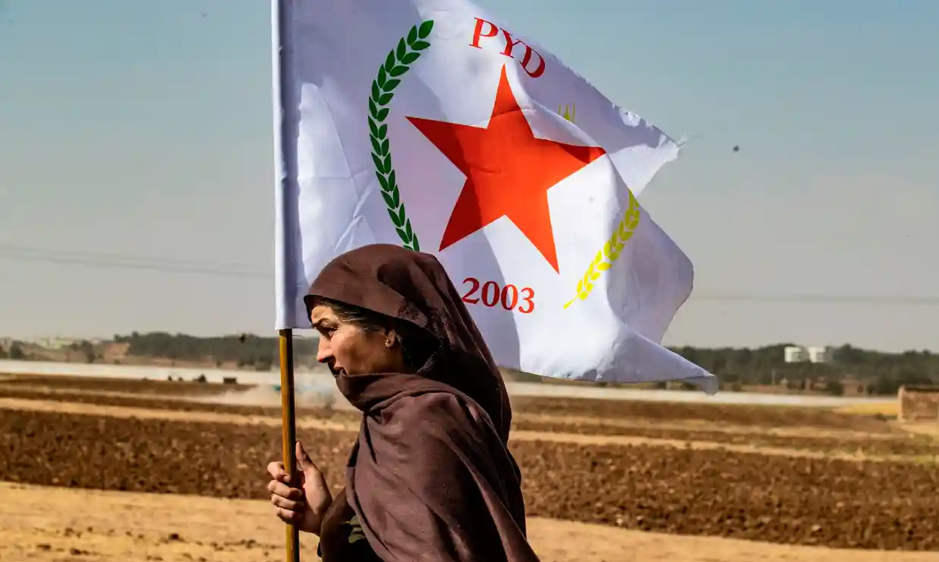By Tallulah Rose Taylor, BA Social Anthropology and South Asian Studies
Turkey’s military invasion of North Eastern Syria, also known as Rojava, has recently intensified with reports of war crimes committed with such intentionality that they have been deemed as acts of ethnic cleansing.
On 9 November, Turkey began a military offensive along the Syrian/Turkish border. This came just days after Trump made the decision to withdraw American soldiers from Syria. The removal of US troops signalled to Turkey to go ahead with their long planned invasion. Ankara claimed Turkey was invading to establish a 32 km “safe zone”, later threatening to “open the borders with Europe” if they faced any resistance or opposition.
According to the Syrian Observatory of Human Rights (SOHR), Operation Spring Peace, the ironically named Turkish military offensive in Rojava, has displaced more than 300,000 people. The majority of the displaced people have fled to Hasakah, Raqqa and Deir-ez-Zor. They are in immediate need of food, water, emergency shelter and fuel. The UN reports that “most are being sheltered in host communities but an increasing number of them are arriving at collective shelters… many are seeking refuge in schools.”
The Syrian National Army (SNA) is trained and equipped by a rebel alliance, under the control of the Turkish army. In a video circulating on social media, SNA soldiers shout: “We are mujahedeen from Faylaq Al-Majd [Glory Corps] battalion”, and call the body of killed YPJ fighter, Amara Renas, a ‘whore’. The YPJ (Women’s Protection Units) has been at the forefront in fighting off the Islamic State in Syria. However, due to the recent Turkish invasion of Rojava and the need to prioritize their own defence, IS prisons under Kurdish security administration, have had to be left virtually unguarded and reports claim that hundreds of former fights and their families have escaped.
The UN released a statement that the Syria National Army (SNA) and Turkish military “have displayed a shameful disregard for civilian life, carrying out serious violations and war crimes, including summary killings and unlawful attacks that have killed and injured civilians”. Alarmingly, both the UN and human rights groups have documented that Kurdish civilians who attempt to return to cities such as Ras al-Ayn, are questioned by Turkish militia about their identity and affiliation with the YPG. Kurdish people and anyone associated with the YGP have their homes and possessions confiscated. Furthermore, front doors of houses owned by Christians are marked with graffiti, which is reminiscent of previous IS practises in Syria.
Kumi Naidoo of Amnesty International stated, “Turkish military forces and their allies have displayed an utterly callous disregard for civilian lives, launching unlawful deadly attacks in residential areas that have killed and injured civilians”. US drone footage show SNA gunmen clearly targeting civilians, and reports of white phosphorus attacks on innocent civilians, causing severe chemical burns. Turkish-backed soldiers have executed civilians on the road. Hevrin Khalaf, a female Syrian-Kurdish politician, was brutally executed along with nine other Kurds by Ahrar al-Sharqiya, a rebel branch of SNA, which highlights the specific, ethnically motivated violence spiraling into a catastrophic humanitarian crisis in Rojava, carried out by Turkey and Turkish-backed militia.
War crimes and racially motivated violence committed by Turkish-backed militia directed at Kurds and Christians, demonstrates an intent to permanently change the ethnic demographic of North Eastern Syria.
Beyond the loss of life, homes and livelihoods, the remarkable revolution in Rojava is also experiencing potentially irreparable damage. Formed in the midst of civil war, the Democratic Federation of Northern Syria became home to Kurds, Arabs, Christians and several other minorities. The model of governance is inspired by Omar Aziz and PKK founder Abdullah Öcalan who advocates for the centrality of women’s rights and women in leadership in any movement for social change. Rojava is modelled on Ocalan’s ideology of Democratic Confederalism, based on a democratic and autonomous society, ecological sustainability and gender equality. Their alternative economic model uses the co-operative system, based on social and communal principles to democratise all sectors of society. Many sources claim that Turkey’s invasion is aimed at permanently dismantling the Kurdish region in Syria due to the YPG’s affiliations with the PKK who are seen as a threat to Turkish state security.
The war crimes and racially motivated violence committed by Turkish-backed militia directed at Kurds and Christians shows the intent to permanently change the ethnic demographic of North East Syria. “We are witnessing ethnic cleansing in Syria by Turkey, the destruction of a reliable ally in the Kurds, and the reemergence of ISIS,” said Senator Lindsey Graham (R-SC). Rojava’s experiment in direct democracy and equality remains under threat from Turkey despite multiple EU countries having frozen arms sales to Turkey. There absolutely needs to be more pressure put on Turkey from numerous heads of state to protect Kurdish and non-Kurdish minorities in Syria from the ethnic and racial descrimination and targeted violence of Turkish and Turkish-backed militia.
